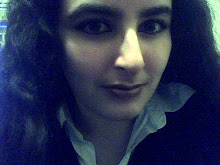There are long, drawn-out moments in which we find time to observe in others what we see in ourselves, for we must come to understand that all humans share in common quite a few things. Burning passions or more hidden and subtle desires exist in every person and cannot be entirely avoided. Some choose to ignore or suppress these natural inclinations, while others embrace it and let it be their cynosure in all aspects of life. Either way, the dictations of the heart preside in all of us and the only marked difference is how we choose to let it define who we are and our perspective of the world.
At a time in England’s history, when exploration for gold and glory paralleled the exploration of new religious doctrines, by people who were constantly seeking higher satisfaction, Elizabethan writer Thomas Dekker also found in himself what was being reflected in society. He was never content with his work. He was relentless, to the point of careless mediocrity, and he concluded that humans “are ne’er like angels till our passion dies.” When Dekker speaks of angels, he refers to the goodness that lies within every person, and our ability to transcend our self-destructive desires. As angels, Thomas Dekker implies that man would be free from evil and pain, from passions that take hold of us and bind us in chains. A similar point of view concerning human nature is Rousseau’s idea that, “man is born free, but everywhere he is in chains.” As with Dekker, Rousseau finds man’s natural desires are somehow the cause of narrow-minded, selfish, and limited thinking. In his age, Dekker saw passions as misdirected and the source of every flaw in susceptible people. Thomas Dekker believes that our passions represent everything that is condemned. However, he knows that our passions will never go away, thus humans will never be angels. Perfection and purity will never be attained. We are confined, as humans, to moral corruption and mortality.
What about the good that can come from passion? While Dekker believed it contributed to the loss of godly principles, William Butler Yeats, a notable dramatist in the 20th Century, believed emotions allowed us to connect with our spirituality. He goes further to say that man’s intuitive logic comes from the “heart”, or rather the deepest part of our souls. “The only business of the head in the world is to bow to ceaseless obeisance to the heart”, depicts the notion that everyone is initially guided by their emotional feelings, and that humans observe the world through their passions, and desires. It also hints at the idea that it is not up to humans to prove everything or to know everything through mere logic; our intellectual and philosophical thinking is to be guided by our morality.
Thomas Dekker believed passion leads to all the evil and suffering humans are subjected to and that we should strive to rid ourselves of it, while Yeats believes that this same passion is something humans should accept, and something we should let guide even our logic. Both recognize that if our understanding of human nature is correct, our passions will never leave us. Humans have learned that whether passions are a blight or treasure, no one is ever alone in their affections, aspirations, and ambitions.
Because of You
-
The time has come to call a halt to Buffalo’s Ruminations. I have
absolutely nothing to say that is worth the energy expended to read it. Meaningless
ja...
14 years ago






9 comments:
Passions are what drive us. Why let go of them? Dekker seems a bit of a pessimist, while Yeats seems more of an optimist and realist. Passions drive us... passions are the strength of our emotions. As humans, we're emotional. How can we let go of our humanly qualities? It is impossible.
Exactly.
Sometimes, I grow to detest my passions, but then I come to accept my humanity.
Why would you detest them? I mean, sometimes they can be bad, but they're also good. It's neutrality and humanlike.
Wait, what do you mean by neutrality?
And, yeah, I should not despise them....
Neutrality is, in this case, the balance of negative and positive human emotions.
Makes sense. Gosh your brilliant. =)
Hah I'm not brilliant. I'm just saying if you're the type who acts happy 24/7, there's usually something wrong and hidden. Balances make us human.
Choosing to sublimate "passion" is a passion in and of itself.
True. Trying to get rid of your passions may just mean that you are trying to rise above humanity and could be just another selfish act or selfish thought.
Post a Comment